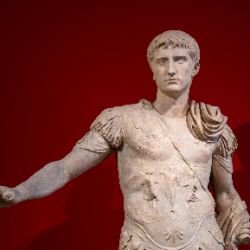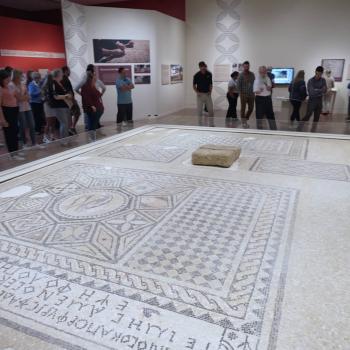For today's Catholics, Dante presents a way of thinking rigorously about sin, human nature, and the work of divine grace that is largely absent from the daily life of American Catholicism.
Though I was a Catholic for most of my adult life, I had never encountered the rich theological heritage of the medieval Church, especially its mystical focus on salvation as theosis — being metaphysically united with the being of God. Catholics coming fresh to Dante will be astonished by the depth and beauty of his work, a buried treasure within their own tradition.
Orthodox Christians may be surprised to discover how much of our own theology and spirituality finds expression in the Commedia, which was written only 250 years after the Great Schism. Western Christians of that age still shared a metaphysical outlook with their separated Eastern brothers.
As an Orthodox convert from Catholicism, I was routinely startled by how much Orthodox truth I was reading in this deeply Catholic work, especially in the third part of Dante's trilogy. Paradiso is entirely about theosis, which is far more central to Orthodox spirituality today than it is to Western spirituality. The Commedia is a Catholic poem, not an Orthodox one, but reading it critically made me a better Orthodox Christian.
Protestant readers may be delighted to discover the same spiritual depth in the Commedia, even though they, like the Orthodox, will not agree with all of Dante's theology. They will especially appreciate how prophetic the poet was in exhorting the corrupt medieval Church to repentance from the same institutional sins that, two centuries after Dante, would spark the Reformation.
Alan Cross is a Southern Baptist pastor who read an advance copy of my new book about Dante, and who experienced several moments of recognition and repentance in the process.
In his review of my book, How Dante Can Save Your Life, Pastor Cross wrote that his fellow Baptists can learn from the poet the importance of discipleship.
"Our goal is often trying to get people to the place where they can do evangelism or ministry instead of seeing them be made whole," he wrote, "as though we don't realize that personal wholeness has its own value."
Christians today live in a time of chaos and trial for the church, but one of this era's blessings is how we Christians are working together across our divisions, and learning to see things of value in other traditions. In particular, the world of classical Christian education has opened the minds of many contemporary believers to the wisdom of the pre-modern Christian past.
Dante Alighieri stands near a hinge point in Christian history. He is close enough to the 1054 schism cleaving East and West so that strong echoes of Eastern Christianity can still be resoundingly heard in his poem today. And he writes as a Western Christian in the twilight of the European church's unity, before many of the very things he excoriates in his symphonic hymn to the glory of God would shatter the bonds of fellowship forever. I believe that Dante can serve as a figure of unity and a source of fellowship for all believers today.
As monumental as that sounds, Dante is also a practical guide to spiritual renewal. In a letter to one of his patrons, the exiled Tuscan poet said that he intended the Commedia to be a guide to delivering lost souls, including struggling believers, as he once was, "from the state of misery, and to lead them to the state of bliss."
Seven centuries later, I am here to testify that Dante works — or, to be precise, God still works through Dante, whose luminous poem, undimmed by the passage of time, is a lantern to all Christians searching for the road home in this present darkness.




